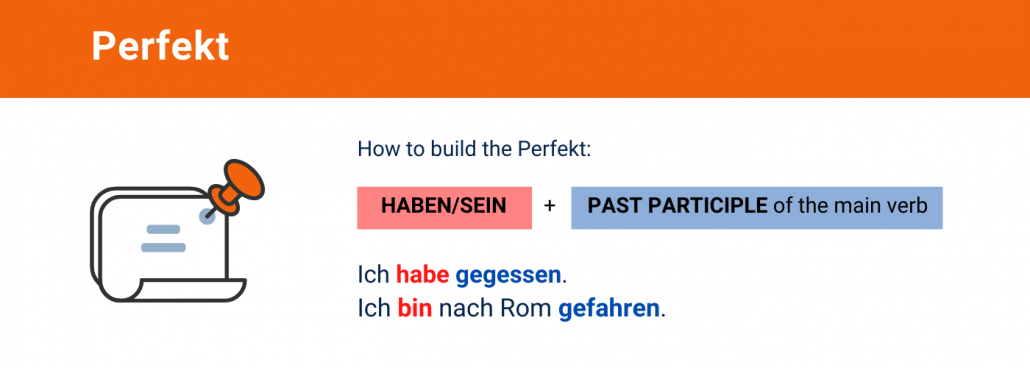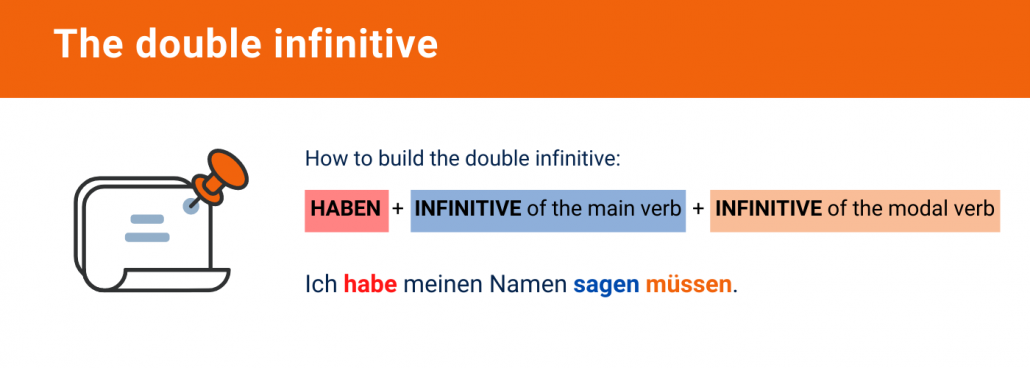Do you want to go deeper on specific topics about German Grammar and conversation? Berlino Schule offers you different interactive lessons to improve many German language topics.
Perfekt, local and temporal prepositions, sentence structure with complements, Präteritum… Berlino Schule’s webinars are just what you are looking for if you want to learn or revise specific topics of the German language. Every lesson is a full immersion on different aspects of the German grammar, to go deeper on the language and remove any doubts.
- Each single lesson costs 18 € per person and runs for 90 minutes.
- If you book three webinars you pay only 45 € (15 € per lesson).
- It’s an interactive lesson: students can ask questions and talk with the teacher. During every webinar the student will practice German grammar, comprehension and do role plays.
- Teachers are only German native speakers.
- Limited spots per lesson: 16 people.
- No need of books, material will be provided from the school.
- Lessons will be held on Zoom. You don’t need to download any app, you will only have to click on a link provided by the school.
Please write to info@berlinoschule.com to reserve your spot.
Choose the topic you want from the list below and email info@berlinoschule.com to book your space.
1. Perfekt
2. Local and temporal prepositions
3. Sentence structure with complements
4. Präteritum
5. Legal German
6. Prepositions (akk & dat) and verbs of position and movement
7. German for the every day life
8. Modal verbs
9. Dative or accusative? The German cases.
10. Adjective declinations
11. Business German
12. Konjunktiv II
13. The infinitive sentence in German
14. German for doctors and nurses
15. German for the job Interview
1. PERFEKT
Part 1: A brief review of the formation of the past perfect. Have or be as auxiliaries? How to recognise the correct auxiliary.
Part 2: The prefixes & suffixes: ge or without ge? With suffix en or t? How to recognise the right prefix and suffix.
Part 3: The past tense in the affirmative, negative and interrogative sentences and sentence structure.
Part 4: Role plays and interactive quizzes for each section with space for questions and doubts.
It’s a recommended lesson for people with the following German level: A2.2, B1.1, B1.2, B2.1, B2.2
Dates available at the moment:
Monday 8 March / 17.40 – 19.10 – 18 €
Monday 5th April / 17.40 – 19.10 – 18 €
Monday 3 May / 17.40 – 19.10 – 18 €
Price: 18€ (45 € if you book three different webinars)
Reserve your spot: info@berlinoschule.com
2. LOCAL AND TEMPORAL PREPOSITIONS
Part 1: In, auf, über, unter, nach, zu? How to choose the correct preposition. Practical rules to avoid any mistake and consolidation exercises.
Part 2: Seit vs. vor? How to use temporal prepositions.
Part 3: Dative or accusative? How not to get cases wrong by choosing the right verbs: verb of motion vs. stative verbs.
Part 4: Where is the post office? How can I get to school? Knowing how to ask for information in the street and giving directions through role play and text comprehension.
It’s a recommended lesson for people with the following German level: A2.1, A2.2, B1.1, B1.2, B2.1
Dates available at the moment:
Tuesday 9 March / 17.40 – 19.10 – 18 €
Tuesday 6 April / 17.40 – 19.10 – 18 €
Tuesday 4 May / 17.40 – 19.10 – 18 €
Price: 18€ (45 € if you book three different webinars)
Reserve your spot: info@berlinoschule.com
3. SENTENCE STRUCTURE WITH COMPLEMENTS
Part 1: Tekamolo in affirmative, interrogative and negative sentences: the rule for using complements in the sentence.
Part 2: The correct word order: should AKK or DAT go first?
Part 3: Ich kaufe meinem Bruder eine Puppe or ich kaufe eine Puppe meinem Bruder? 20 minutes of role play to practise the correct structure.
Part 4: How would the Germans say? last night at 6 p.m. we watched a match. The sentence structure with the past tense and the subordinate clauses.
It’s a recommended lesson for people with the following German level: A1.2, A2.1, A2.2, B1.1, B1.2
Dates available at the moment:
Wednesday 10 March / 17.40 – 19.10 – 18 €
Wednesday 7th April / 17.40 – 19.10 – 18 €
Wednesday 5 May / 17.40 – 19.10 – 18 €
Price: 18€ (45 € if you book three different webinars)
Reserve your spot: info@berlinoschule.com
4. Präteritum
If you want to brush up the Präteritum in German and understand when you should use the Präteritum or the Perfekt this is the webinar you’re looking for.
Part 1: The formation of the past tense in regular and irregular verbs: practical rules to avoid mistakes.
Part 2: Perfekt or Präteritum? Which to use?
Part 3: Text comprehension: Can you understand a fairy tale in German? Guess which fairy tale it is.
Part 4: Try to present a fairy tale from your own country: an interactive exercise to practice the Präteritum.
Recommended for the following German levels: A2.2, B1.1, B1.2, B2.1
Dates available at the moment:
Monday 15 March / 17.40 – 19.10 – 18 €
Monday 12 April / 17.40 – 19.10 – 18 €
Monday 10 May / 17.40 – 19.10 – 18 €
Price: 18€ (45 € if you book three different webinars)
Reserve your spot: info@berlinoschule.com
5. Legal German
You are a lawyer and would like to learn legal German? Our legal German webinar is aimed at lawyers or would-be lawyers who would like to perfect or learn the legal jargon from scratch. Are you a translator and would like to specialise in legal German but don’t know if it’s right for you? This webinar is what you are looking for.
It’s a recommended lesson for people with the following German level: B1.1, B1.2, C1.1, C1.2.
Dates available at the moment:
Monday 15 March / 17.40 – 19.10 – 18 €
Monday 12 April / 17.40 – 19.10 – 18 €
Monday 10 May / 17.40 – 19.10 – 18 €
Price: 18€ (45 € if you book three different webinars)
Reserve your spot: info@berlinoschule.com
6. PREPOSITIONS AKK & DAT AND VERBS OF MOVEMENT
Part 1: Stellen or stehen? Legen or liegen? Sitzen or setzen? How to recognise the right verb.
Part 2: Can you put the bottle on the table? Where did you put the books? How to translate the verb “to put” in German depending on the context. A full immersion with practical exercises using the most common prepositional verbs.
Part 3: “warten auf” comes with accusative or dative? People vs. things. How do I say in German: what are you talking about or who are you talking to? 15 minutes of interactive exercises to remove any doubt.
Part 4: 20 minutes of role play in everyday contexts to use verbs with prepositions in everyday life.
It’s a recommended lesson for people with the following German level: A1.2, A2.1, A2.2, B1.1, B1.2
Dates available at the moment:
Tuesday 16 March / 17.40 – 19.10 – 18 €
Tuesday 13th April /17.40 – 19.10 – 18 €
Tuesday 11 May /17.40 – 19.10 – 18 €
Price: 18€ (45 € if you book three different webinars)
Reserve your spot: info@berlinoschule.com
7. GERMAN FOR THE EVERY DAY LIFE
You understand the main grammatical structures but you don’t know the vocabulary of the everyday life? What do you say when you are in a restaurant? at the post office? in a public office? or in a bank?
I would like to open an account, send a package, reserve a seat and do theAnmeldung!. 30 minutes of role play to learn how to express yourself correctly in everyday life. In this webinar you will also review the main grammar structures to be able to express yourself on a daily basis.
It’s a recommended lesson for people with the following German level: A2.1, A2.2, B1.1, B1.2.
Dates available at the moment:
Wednesday 17th March / 17.40 – 19.10 – 18 €
Wednesday 14 April / 17.40 – 19.10 – 18 €
Wednesday 12 May / 17.40 – 19.10 – 18 €
Price: 18€ (45 € if you book three different webinars)
Reserve your spot: info@berlinoschule.com
8. Modal verbs
Do you know which is the correct modal verb to use if you want to express a wish or say what you can do or give an advice? In this webinar you will learn how to use modal verbs in the right place at the right time.
Part 1: Müssen o sollen? Wollen or möchten? Dürfen o können? when to use them and why.
Part 2: The sentence structure of modal verbs: affirmative, interrogative or negative sentences.
Part 3: Which modal verb to use if you want to give advice to a friend? 10 minutes of interactive exercises corrected by the teacher to use modals in everyday life.
Part 4: How to order a coffee in a bar, book a hotel or express a preference: 20 minutes of role-plays on topics from everyday life.
It’s a recommended lesson for people with the following German level: A2.1, A2.2, B1.1, B1.2.
Dates available at the moment:
Monday, 22 March / 17.40 – 19.10 – 18 €
Monday, 19 April / 17.40 – 19.10 – 18 €
Monday, 14 May / 17.40 – 19.10 – 18 €
Price: 18€ (45 € if you book three different webinars)
Reserve your spot: info@berlinoschule.com
9. DATIVE OR AKKUSATIVE? THE GERMAN CASES.
Ich frage dich o dir? Ich sage dir o dich? This webinar is ideal for those who have doubts about when to use the accusative or the dative. 30 minutes of role-playing after the grammar explanation to eliminate every doubts.
Part 1: the cases in German and their function
Part 2: the dativ, its verbs and prepositions
Part 3: the accusative, its verbs and prepositions
Part 4: dative vs akkusativ: when should I use teh akkusativ and when should I use the dativ
It’s a recommended lesson for people with the following German level: A1.2, A2.1, A2.2, B1.1, B1.2, B2.1.
Dates available at the moment:
Monday, 22 March / 17.40 – 19.10 – 18 €
Monday, 19 April / 17.40 – 19.10 – 18 €
Monday, 14 May / 17.40 – 19.10 – 18 €
Price: 18€ (45 € if you book three different webinars)
Reserve your spot: info@berlinoschule.com
10. ADJECTIVE DECLENSION
Part 1: The adjective: when to decline it and when not to.
Part 2: To whom does it refer? The three declensions of the adjective.
Part 3: How to remember all the adjective endings without ever getting them wrong.
Part 4: Do you prefer the red jacket or the green one? 20 minutes of role play in real situations: at home, in the shop, at the supermarket, at work.
It’s a recommended lesson for people with the following German level: A2.1, A2.2, B1.1, B1.2
Dates available at the moment:
Tuesday 23 March / 17.40 – 19.10 – 18 €
Tuesday 20 April / 17.40 – 19.10 – 18 €
Tuesday 18 May / 17.40 – 19.10 – 18 €
Price: 18€ (45 € if you book three different webinars)
Reserve your spot: info@berlinoschule.com
11. BUSINESS GERMAN
Part 1: How to write an e-mail in German: the structure.
Part 2: Formal German: the header, greetings and courtesy formulas to use.
Part 3: Reading emails, business letters, credit notes.
Part 4: Selling and promoting a product: 20 minutes role-playing as a seller, buyer or supplier.
It’s a recommended lesson for people with the following German level: B1.1, B1.2, B2.1, B2.2, C1.1, C1.2
Dates available at the moment:
Wednesday 24 March / 17.40 – 19.10 – 18 €
Wednesday 21 April / 17.40 – 19.10 – 18 €
Wednesday 19 May / 17.40 – 19.10 – 18 €
Price: 18€ (45 € if you book three different webinars)
Reserve your spot: info@berlinoschule.com
12. KONJUNKTIV II
Part 1: wir würden oder könnten? When to use them and why.
Part 2: Which subjunctives are most commonly used: practical examples for everyday life.
Part 3: The subjunctive in the affirmative, interrogative and negative sentence. The subjunctive to express an unreal hypothetical period.
Part 4: Can you make a suggestion? You want to invite a friend to dinner and you don’t know how to say it? 20 minutes of role play to use the subjunctive in everyday life.
It’s a recommended lesson for people with the following German level: A2.2, B1.1, B1.2, B2.1, B2.2
Dates available at the moment:
Monday 1 March /17.40 – 19.10 – 18 €
Monday, March 29 / 17.40 – 19.10 – 18 €
Monday, 26 April / 17.40 – 19.10 – 18 €
Monday. 24 May / 17.40 – 19.10 – 18 €
Price: 18€ (45 € if you book three different webinars)
Reserve your spot: info@berlinoschule.com
13. The infinitive clauses in German
Ich gehe einkaufen or ich gehe einzukaufen? This webinar is meant to review the infinitive sentence in German and finally understand when to put “zu” and when it is not necessary. “Zu” or “um zu”? 90 minutes of role-playing games and targeted exercises to better understand their use.
Part 1: the infinitive sentence in German: its structure
Part 2: the difference between the infinitive and the infinitive with zu
Part 3: zu or um zu? The structure and the difference.
It’s a recommended lesson for people with the following German level: A2.1, A2.2, B1.1, B1.2
Dates available at the moment:
Tuesday 30 March / 17.40 – 19.10 – 18 €
Tuesday 27 April / 17.40 – 19.10 – 18 €
Tuesday 25 May / 17.40 – 19.10 – 18 €
Price: 18€ (45 € if you book three different webinars)
Reserve your spot: info@berlinoschule.com
14. Medical German for doctorn and nurses
Are you a doctor or nurse and you want to learn the technical jargon to be able to express yourself correctly in the operating room, in the emergency room with patients and colleagues? 30 minutes of role-playing games in the different rooms of the hospital to learn how to express yourself better.
It’s a recommended lesson for people with the following German level: B1.1, B1.2, C1.1, C1.2.
Dates available at the moment:
Wednesday 3 March / 17.40 – 19.10 – 18 €
Wednesday 31 March / 17.40 – 19.10 – 18 €
Wednesday 28th April / 17.40 – 19.10 – 18 €
Wednesday 26 May / 17.40 – 19.10 – 18 €
Price: 18€ (45 € if you book three different webinars)
Reserve your spot: info@berlinoschule.com
15. German for the job interview
Are you looking for a job and want to prepare yourself well for the interview? In this webinar you will get the chance to prepare yourself with trainers who can proofread your presentation and set it up correctly. You will learn how to make a good impression at the job interview using the right grammar structures and expressions. 30 minutes of role-plays to simulate the interviews.
It’s a recommended lesson for people with the following German level: B1.1, B1.2, C1.1, C1.2.
Tuesday 30 March / 17.40 – 19.10 – 18 €
Tuesday 27 April / 17.40 – 19.10 – 18 €
Tuesday 25 May / 17.40 – 19.10 – 18 €
Price: 18€ (45 € if you book three different webinars)
Reserve your spot: info@berlinoschule.com
About the school
Our language school Berlino Schule has born in 2016 in Gryphiusstr. 23, 10245 Berlin-Friedrichshain. Since then the school had thousands of students onsite and online from every side of the world and collecting a very high average rating on Google (4.9 out of 5) and on Facebook (5 out of 5) with hundreds of reviews.
Are you looking for an online group German course?
Do you prefer to do a full intensive group course? Berlino Schule offers a whole range of German levels classes, from the beginner level (A1.1) to the most advanced ones (C2), as well as a guided preparation for the TELC exam (a highly requested certification from every German university). After every online course, Berlino Schule will releases a certificate of attendance that can be attached to your personal résumé and sometimes covers some university language credits. Check out our calendar and write to info@berlinoschule.com to book a place.
Are you looking for an onsite group German course?
Berlino Schule offers German onsite classes in its office in Berlin-Friedrichshain. You can find: intensive morning courses, intensive afternoon courses, extensive evening courses and private classes. You can find the calendar here. Write to info@berlinoschule.com to book a place.





 German Grammar Webinar Online Classes
German Grammar Webinar Online Classes